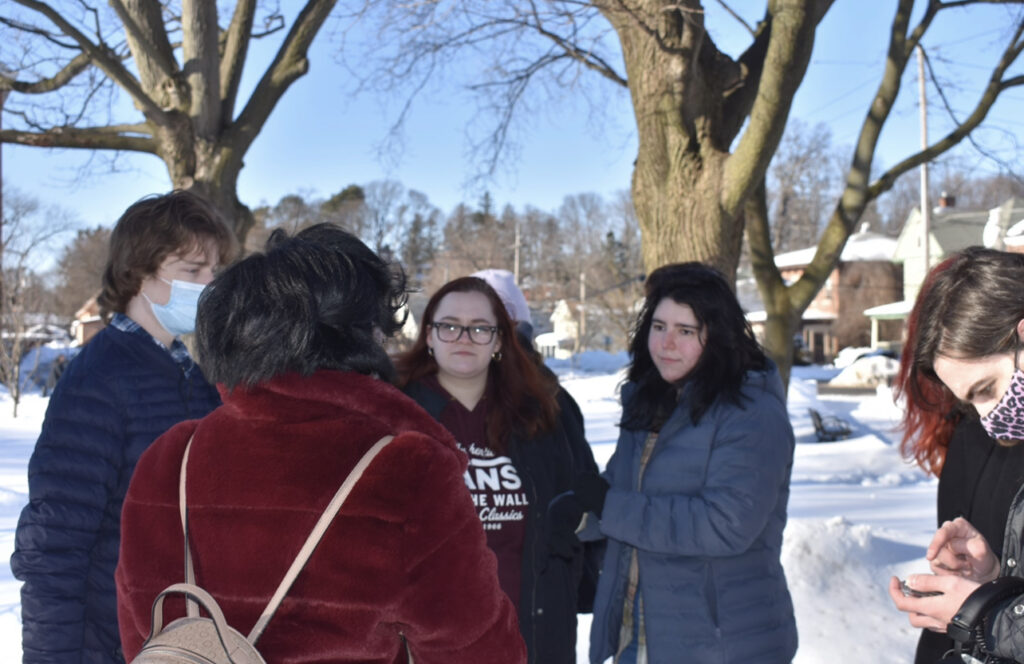
ANDREA VÉLEZ-DAVIS
Special to The Leader
During only the second week of the semester, faculty, staff and students at SUNY Fredonia have been bombarded with news regarding the viewpoints of a professor. Many scrambled to grasp the idea that a tenured professor at the liberal arts college would argue that pedophilia and adult-child sex are not morally wrong.
Since the video of Dr. Stephen Kershnar discussing adult-child sex blew up, the student and community response has come to a mutual agreement that something needs to be done about Kershnar. This is reflected by the over 15,000 signatures (as of Feb. 7) on the petition started by Olivia Sylvester, a sophomore mathematics major at Fredonia, to fire Kershnar.
On Feb. 6, students gathered at 2:30 p.m. at Barker Commons in the downtown area of Fredonia to peacefully protest the ongoing events. When arriving at the scene, it was apparent that the students and community members that crowded at the set location had a lot to say about Kershnar’s controversial views.
Sophomore video production major, Michael DeBitetto said, “The school definitely knew about this stuff. He had articles [and] posts on it. It’s deplorable what he thinks, so I don’t understand how he can possibly get a job, much less be a tenured professor for that many years.”
However, the demonstration at Barker Commons turned out to be more of an open discussion about how this is affecting the student body, particularly students’ mental and emotional health, rather than an organized protest.
Dr. Andrea Zevenbergen, a distinguished teaching professor at Fredonia who teaches psychotherapy, multicultural counseling and child psychopathology was also at the protest.
She mentioned how students in her classes have very strong views on this because according to her, “it’s not just about issues of adult-child sex — it’s a person that is known to have attitudes that are racist, sexist and homophobic [and opinions on the] class system.” Zevenbergen continued, “It just fits in for the classes I teach, where students are talking about this a lot.”
Zevenbergen also explains that students who have experienced child or adolescent sexual abuse may be re-traumatized by the ideas that Kershnar has been spreading for evolutionary reasons. “I just think that’s traumatizing. And it’s also just stressful,” she said.
Similar concerns were brought up by students who either took classes with Kershnar or are close to people who had him as a professor. Freshman childhood education major, Shashona MacPhee, explained how her roommate had Kershnar as a professor in the fall of 2021.
MacPhee emphasized that the stories she heard “just sounded wrong.”
“They weren’t something that any professor should be teaching their students,” MacPhee said. “And it was something that me and her talked about in great length because it was crazy. It made her really question everything.”
As the current events with Kershnar continue to unfold, students and community members will be faced with the challenging impact of his words. Students’ mental health may undergo significant troubles as result. The real question is, what will be done about it?
